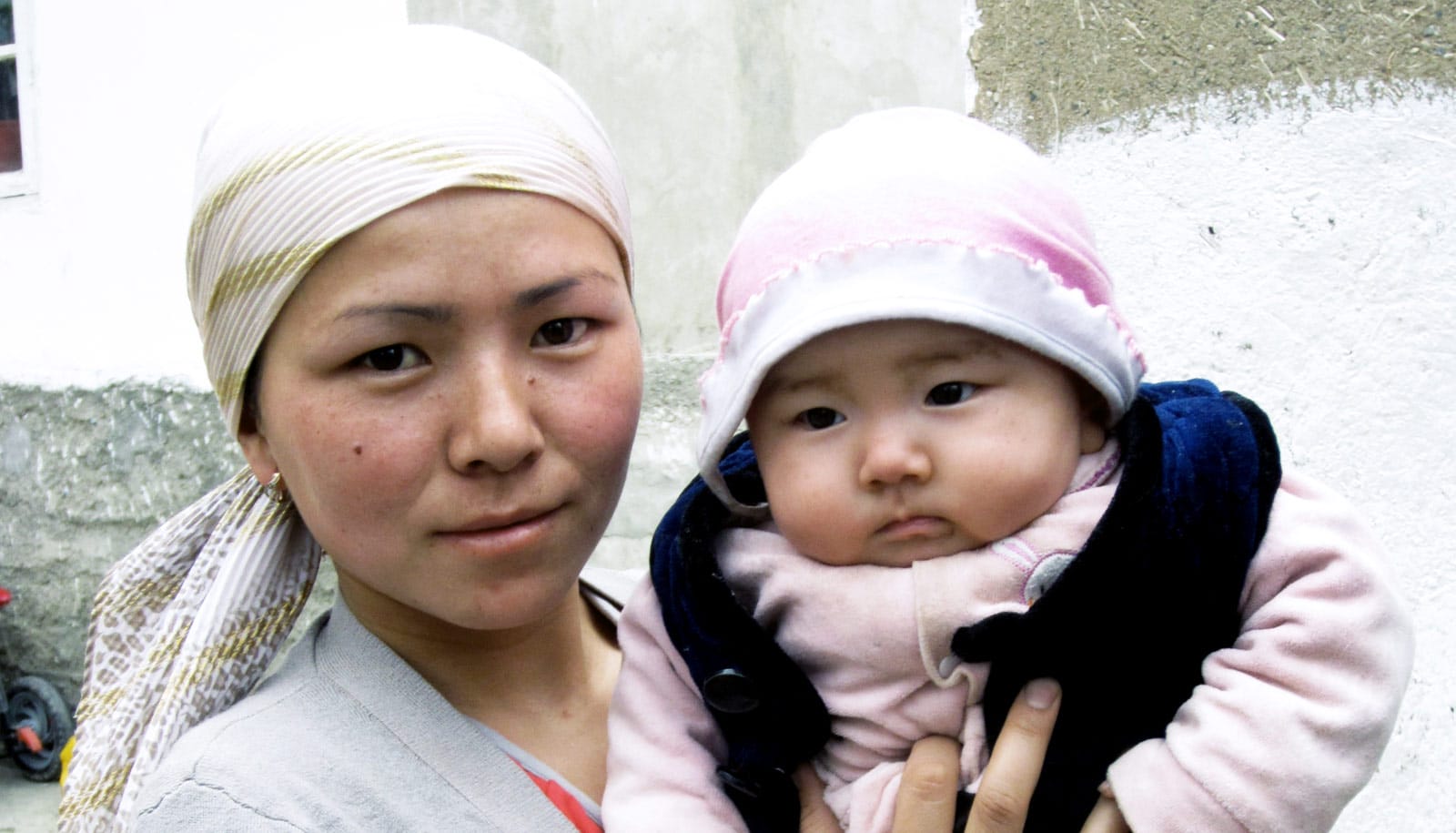In the Central Asian republic of Kyrgyzstan, bride kidnapping—abducting young women and girls for the purpose of marriage—remains widespread. Children born to these kidnapped brides weighed 80 to 190 grams less than infants born in arranged marriages.
Birthweight provides an important marker of both mothers’ and babies’ health, says Charles Becker, a research professor of economics at Duke University and coauthor of the study in Demography.
“…it was important for us to determine if there were measurably harmful outcomes. Clearly there are.”
Previous studies have linked babies’ weight at birth to long-term outcomes including adult height, education, and earnings. Lower birthweights have also been linked to greater risk of disease.
Some defend bride kidnapping, pointing to its long tradition in Kyrgyz society, says Becker, who has worked in Kyrgyzstan for the Asian Development Bank and the American University of Central Asia.
“The practice of kidnapping encompasses events ranging from staged elopement to forced abduction,” Becker says. “It is often defended as being mainly of the former type, so it was important for us to determine if there were measurably harmful outcomes. Clearly there are.”
Lower birthweights have also been found among babies whose mothers were assaulted during pregnancy.
Low birth weight raises death risk into adolescence
Few researchers have attempted to measure the damage wrought by forced marriage, but these women have previously reported high rates of depression, self-harm and even suicide.
Bride kidnapping once extended across much of the world, and has since vanished from most countries. It persists, however, in countries as diverse as Armenia, Ethiopia, Kazakhstan, and South Africa. In Kyrgyzstan, a country of about 5.8 million people, the practice remains especially common in rural areas, despite being illegal.
In Kyrgyzstan, between 16 to 23 percent of marriages result from kidnapping. The numbers are higher among the ethnic Kyrgyz, with bride kidnapping accounting for roughly a third of all marriages in that group.
“Our next step is to explore why the practice of kidnapping is unofficially accepted in a country that quite recently had a woman president.”
The Kyrgyz people call the practice “ala kachuu,” which means “to take and run away.” Typically, a potential groom and his friends take a young woman into a car and transport her to the groom’s home. The groom’s family then pressures the bride to write a letter to her family consenting to the marriage, and to don a “marriage scarf” over her head.
Kidnapped brides tend to be younger than other brides. In Kyrgyzstan, the mean age among those brides is 19. Not surprisingly perhaps, divorce rates also run higher among marriages that resulted from kidnapping.
It’s too soon to say why babies born to kidnapped brides weigh less, Becker says. But maternal stress is a likely cause. Also unclear is why bride kidnapping is so widely tolerated in Kyrgyzstan.
“A striking feature of Kyrgyz society is that women have far more autonomy than in many if not most neighboring societies,” Becker says. “Our next step is to explore why the practice of kidnapping is unofficially accepted in a country that quite recently had a woman president.”
Becker hopes the new findings encourage stronger enforcement of anti-kidnapping laws.
Source: Duke University



